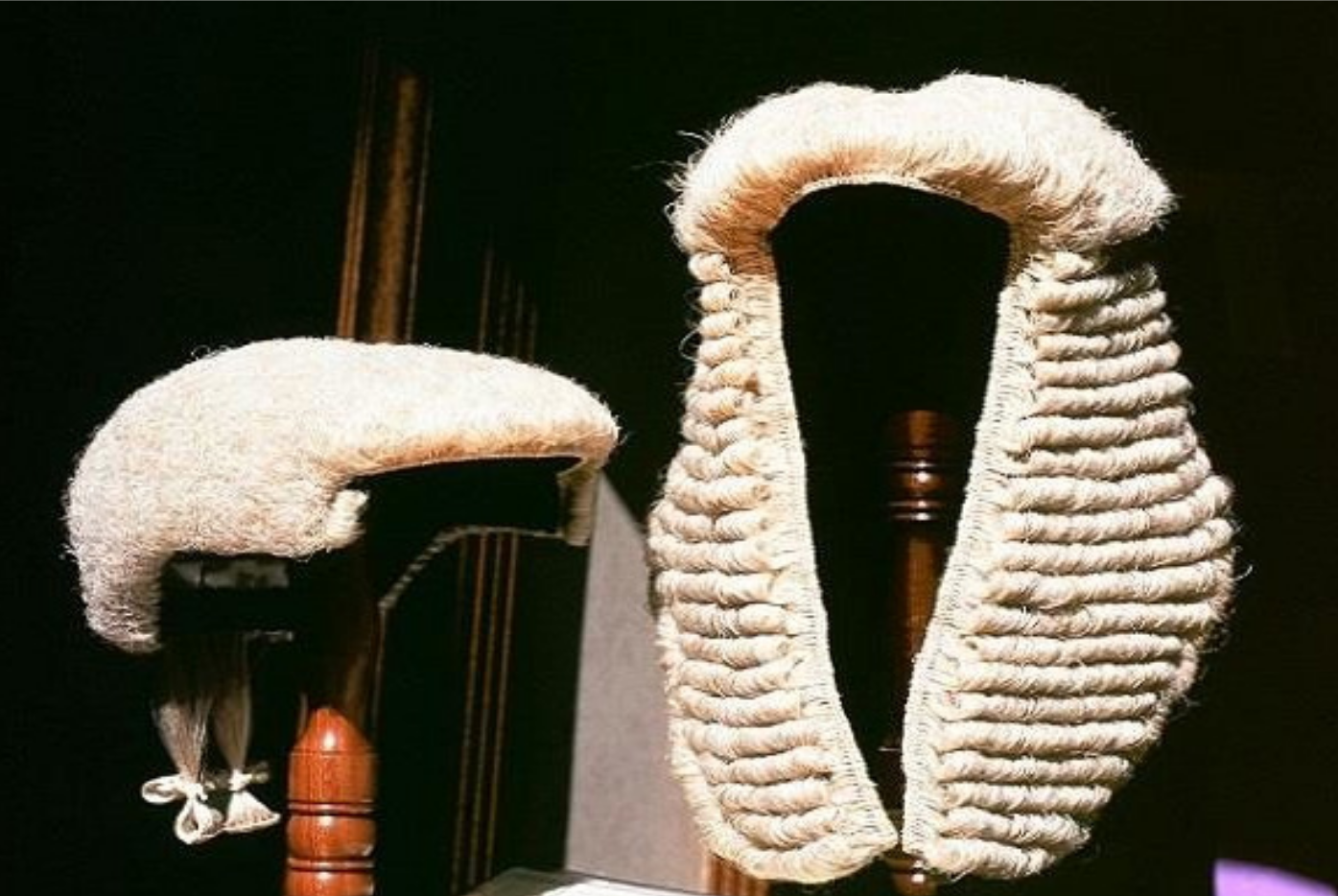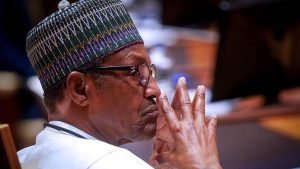
About three decades ago and beyond, Nigerian children at the primary and junior secondary level were familiar with the dramatic piece The Incorruptible Judge by D Olu Olagoke. This play was an apt portrayal of the law as the ‘last hope of the common man’ and the final arbiter in the temple of justice. In the play, a young job-seeker, Ajala is compelled to give a bribe in order to secure employment in the Government Development Department as a Clerk. Asides from the fact that he cannot afford to bribe his way into employment, he is not comfortable with the idea of bringing ‘Kola’ to get a job. He eventually goes to a police officer, Detective-Sergeant Okoro for help. The officer gives him some marked five-Pound notes to give to the Establishment Officer, Mr. Agbalowomeri who is eventually implicated and tried for his offence. The play reaches its climax when the judge of the case between Mr. Ajala and Mr. Agbalowomeri, Justice Faderin, rules in favour of Mr. Ajala, as opposed to Mr. Agbalowomeri who, apart from being guilty of demanding for a bribe from a job-seeker, also attempted to bribe the judge. In the play, Justice Faderin represents the ideal judge who follows the dictates of the Latin maxim ‘Fiat justitia ruat caelum’, which means ‘Let justice be done though the heavens fall.’ Despite being the son-in-law to Mr Agbalowomeri’s friend, he lets justice take its course.
Now the prevailing questions are, ‘What happened to the incorruptible judges of the Nigerian Judiciary? What happened to the moral and humanitarian spirit that birthed the noble profession called Law? Have lawyers, or in this case, the Judiciary, being the last hope of the common man like Justice Faderin of the aforementioned play, or have they been the last rope that hangs them on the gallows of injustice and corruption? It is necessary at this point to employ the method of citing cases of corruption in the judiciary as lawyers are wont to do when they present their case in the court of law, examining the causes, before attempting to proffer some possible solutions.
Sometime in October 2018, Nigeria’s judicial authority, the National Judicial Council (NJC), recommended the sacking of two senior judges for corruption and misconduct. Justices Rita Ofili-Ajumogobia of the Federal High Court and James Agbadu-Fishim of the National Industrial Court of Nigeria were suspended based on findings that Justice Ofili-Ajumogobia ran a private business to which she was sole signatory with several other individuals. Some of these individuals were government officials and business partners who had lodged money in her private accounts. For Justice Agbadu-Fishim, it was a case of receiving money from litigants and lawyers who had cases before him. It was also reported that he received money from some of these litigants under the pretense that he was bereaved or that there was a delay in the payment of his salary. Most of the corruption charges levied against these judges border on financial crimes. As a matter of fact, the word ‘corruption’ has assumed a reflected meaning of either bribery or other forms of inducements in kind, that is aimed at getting a desired objective. Even in the political scene, the mention of the word evokes images of naira notes that change location either from hand to hand or from account to account, often confirmed by the awaited beep of credit alerts in their mobile phones. Last year, Femi Falana, a Senior Advocate of Nigeria, lamented the corruption in the judiciary as well as calling for reforms to redeem their image. Again, as mentioned earlier in this piece, the corruption he refers to is tied to money. In his words, ‘If you steal money in China, it is public execution. Nigeria is the only country where you hire drummers and people wear aso-ebi to court premises…’ Falana goes on to give a diatribe on the different instances where the judiciary had put justice on its head in order to frustrate cases against corrupt public officials. He cited the cases of politicians who used their money and influence to either use the legal system to delay proceedings by filing for interlocutory appeals for stay of proceedings or bringing up technicalities that would delay the entire process. Popular cases like that involving Adolphus Wabara, James Ibori and Mohammed Abacha were deliberately delayed until all the major witnesses and actors in the drama of the court proceedings were either lost or, in the case of the judges, promoted.
It thus becomes a matter of national urgency to take the pertinent step of examining the spirit of the Nigerian legal system. There are obviously a lot of brilliant and outstanding lawyers who can hold their own anywhere in the world. But it is evident that they have only displayed their knowledge of the letter of the law and not the spirit that birthed the law. The law as we know it today was informed by numerous moral codes of ethics which has its roots in religion. Nigeria’s legal system emanated from the legal system of Britain. Britain’s legal system and in fact all legal systems in operation in the world today have their roots in religion. Akhverdiev and Ponomarev stated in their 2018 paper titled ‘Religion as Factor in Formation of Law’ that ‘religious values and tenets are reflected in both historical development of legal provisions and in modern society’. What this shows is that laws were formulated with the intention of bringing order to the society. Numerous lawyers in Nigeria are adept in the citation of cases and selected parts of the Nigerian constitution that support their arguments in court. Some others regularly keep themselves up to date with the latest rulings and proceedings of the apex court through legal journals and reviews. Howbeit, only a few have truly displayed the morality and humanitarianism that was, and remains a vital part of the spirit of the law they practice. If the Nigerian Judiciary wants to regain its dignity, it must begin to abide by the spirit that formed it. It must be truly blind to inducements from family, friends and litigants. It must use the sword and the scale to wage war against injustice. Like the statue of justice suggests, the law must be practiced without fear or favour. It will not be possible for them to do all these with ‘open-eye’ as this will make them focus on using their hallowed office for personal aggrandizement.
The blame does not fall entirely on the Nigerian Judiciary as politicians who have been empowered by a cowed and dominated public, who have, over time, emasculated the judiciary through their lack of regard or respect for the rule of law. This blatant disregard for the rule of law was occasioned by military rule with its decrees that gave no room for questions followed by economic recessions and ‘adjustments’ that made many Nigerians, including the stern-faced judges scramble for their share of the national cake. Even in seemingly ordinary routine matters like obtaining affidavits and other legal documents, one has to go through agents who are generally called ‘touts’. These touts who collaborate with some of the officials in the magistrate courts and high courts remit some of their proceeds to the Commissioner of Oaths or any other person whose signature or seal is required to validate the document. This has been going on for so long that the Nigerian public has normalized it. A good example is the civil service which is replete with civil servants who falsify their age with affidavits with the aim of reducing their age and prolonging their years of service.
One of the main problems of the Nigerian Judiciary lies in the delay of judicial processes. Criminal proceedings, for instance, could take up to 14 years. Nigeria is one country where Appeal Courts have become the legal machinery for delay tactics. This was evident in the bank saga of 2009 involving several bank executives where criminal proceedings commenced in 2009, only for the court of appeal to strike down the case in 2015 on the basis of lack of jurisdiction. While one must acknowledge the fact that a declaration of a lack of jurisdiction might have been essential in the judicial process, it did not have to take six years for the court to strike it down. This abuse of the appeal court was not possible when James Ibori tried to persuade his lawyers in the UK. According to Femi Falana, SAN, the lawyers told him that any attempt to delay the judicial process in England could cost them their license. Based on these two scenarios one can only wonder why the NJC has not adopted the same pattern to curb unnecessary delays. Again, in 2016 the Supreme Court overturned the court of appeal’s decision and ordered a re-trial of the bank executives, ten years after the commencement of the initial trial with room for further appeals. At the moment there is nothing to indicate that this phenomenon will come to an end especially with an avalanche of unwarranted adjournments by defense lawyers.
Read Also: A2Justice Accuse Buhari of ethnic Bias in Appointing Supreme Court Judges
Another issue that begs for consideration is the difference in the treatment of high-profile offenders versus ordinary Nigerians. This inequality is portrayed in the case of Cecilia Ibru, the only convicted bank executive who was sentenced to six months in prison in addition to forfeiting shares and assets worth USD1.2billion. When one compares this to the case of someone who stole N50,000, who will likely get a stiffer penalty. Rich offenders can afford skilled lawyers who are armed with the arsenals to delay or prevent successful prosecution. One can only hope that the introduction of the Administration of Criminal Justice Act of 2015 which aims to promote speedy dispensation of justice will improve the situation. The National Judicial Council should also ensure that they are not selective in enforcing discipline on errant judicial officers. They should also work closely with the media, especially when they go out of their way to investigate institutions of government that are prone to engaging in corrupt practices. Political interference must also be considered when trying to rid the Nigerian judiciary of corruption. Legal scholars agree that the two most common types of judicial corruption are political interference and bribery. Hence, politicians in the executive and legislative arms of government should endeavour to steer clear of court proceedings, especially electoral tribunals. The 2019 general elections have come and gone, yet courts are still deciding who the winners of these elections are. In a country where courts, rather than the electorate determine the outcome of elections, it not only spells doom for democracy, it also affects the public perception of the judiciary. The judiciary is supposed to occasionally interfere in cases of electoral malpractice, but when it is always involved in political affairs, its credibility is questioned. Just recently, the Independent National Electoral Commission announced that it had withdrawn 64 certificates of return due to the emergence of winners declared by the courts. There is need to remind the Nigerian judiciary that Nigerian courts should act as last resorts in cases of electoral result disputes. The Nigerian courts have been unnecessarily put in the spotlight because of elections thereby making them assume the role of arbiters rather than umpires.
Democratic institutions like the Independent National Electoral Commission (INEC) should be strengthened. They should be given more powers to resolve electoral disputes so that the courts can attend to only extreme cases. When the judiciary’s involvement in political matters reduces, their perception in the public sphere will be positively affected. This positive public perception is one of the factors that will usher in the rule of law. The importance of an independent judiciary cannot be overemphasized. Everyone, especially the poor, loses when justice is corrupted. The 2019 Corruption Perception Index (CPI) of Transparency International states that ‘Governments must promote the separation of powers, strengthen judicial independence and preserve checks and balances.’ The Nigerian judicial system has been pinned down with the two-pronged fork of politics and bribery and this is a reflection of Nigeria’s level of development. One can only hope that the judiciary will strive towards becoming incorruptible by also ensuring that appointments of judges are based on merit rather than federal character. Although the idea behind federal character was aimed at practicing inclusive politics, its underhanded implementation has resulted in lopsided appointments that fan the embers of division and marginalization.
Going back to the story of the incorruptible judge, one notices that Justice Faderin, the judge, is pressured by his father-in-law to rule in favour of his friend Mr. Agbalowomeri. Friends and relatives of Nigerian Judges must stop defiling the temple of justice with their ‘Just Us’ mentality. They should not see their filial or fraternal connections to these people as an avenue to thwart the course of justice. For a religion-loving people like Nigeria, the doctrines and tenets of the various religions in the country should be adhered to. Religious leaders have more work to do in this regard, especially as custodians of knowledge and texts that have played a pivotal role in the creation of the law. Like judges, religious leaders should ensure that their involvement in politics is minimal as too much involvement may equally affect their image in a negative way. Again, parents should set good examples for their children to follow because corruption has become an integral part of the Nigerian society. A former governor of Lagos State, Mr Babatunde Fashola, who happens to be a lawyer, attributed part of his success as a governor to family values.
Nigerian institutions of higher learning with their faculties of Law must also strive to mould the character of the students in their care. The lecturers in these faculties must assume the role of parents to their law students who look up to them to quench their thirst for legal erudition. While assessments of moot court sessions should not only be focused on academic intelligence or skill, points should also be given based on character and demeanour. The Nigerian judicial system is not lacking in skill; it is lacking in character and one of such is compassion. A website on legal matters called attorneyatwork.com identifies compassion as one of the attributes of exceptional lawyers. Compassion is an emotional response where one perceives another person’s problem with the intention to bring a resolution. People come to lawyers with their problems and it takes a compassionate lawyer to empathize with them and bury his or her biases, in order to help them. Compassion is the foundation for good human relations which is a skill that successful lawyers possess.
Finally, good judgment is an aggregate of certain qualities like decisiveness. In every case, a judge must arrive at a decision that will inevitably favour one side and this depends on the integrity of the judge in question. A judge who has soiled his hands with bribes cannot make a good judgment thereby giving little chance for cases to be ruled in the spirit of equity, justice and good conscience.
Jude Nwabuokei


Miej odwage zyc. Umrzec potrafi kazdy. – Robert Cody